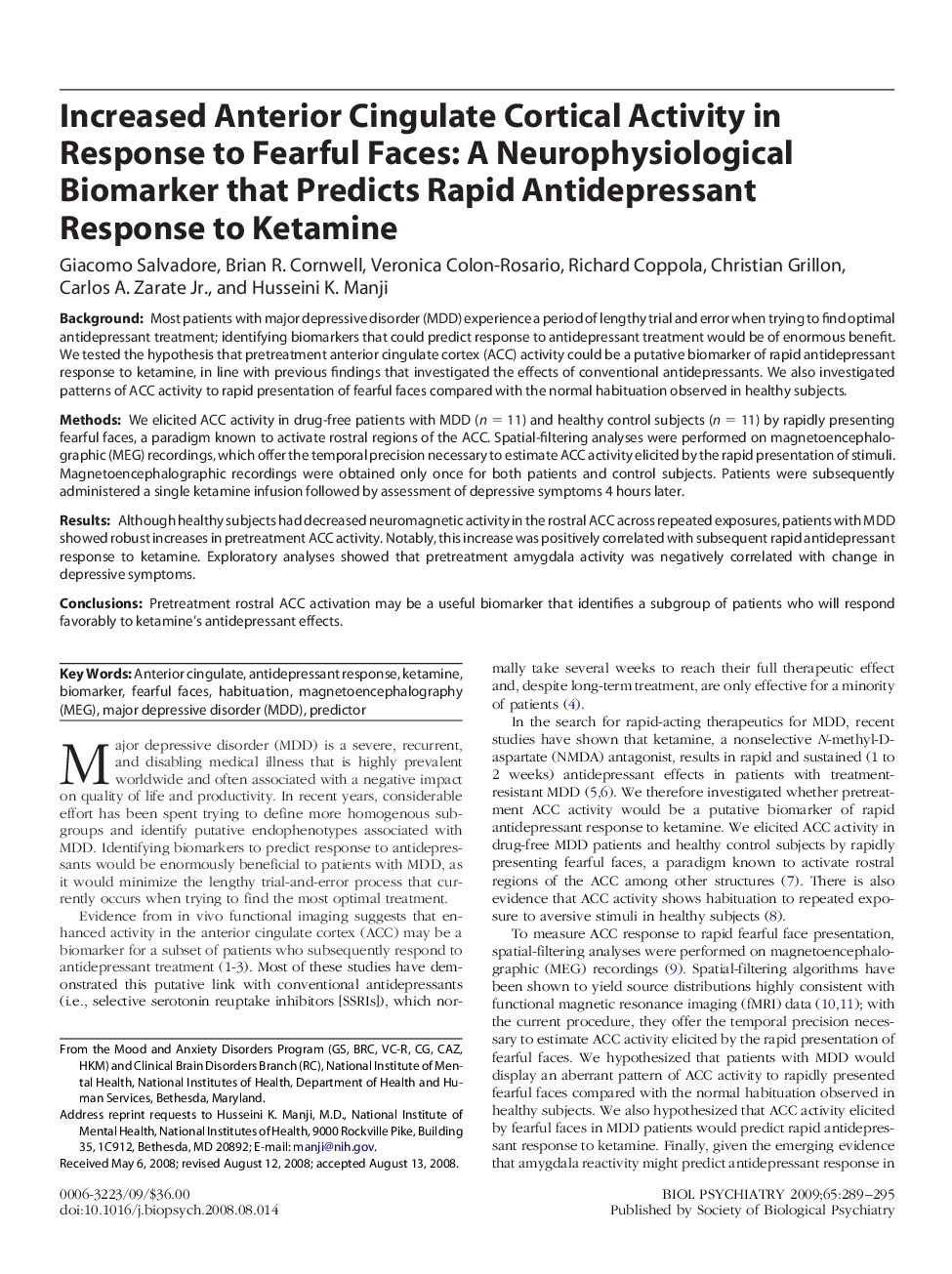| Article ID | Journal | Published Year | Pages | File Type |
|---|---|---|---|---|
| 6228866 | Biological Psychiatry | 2009 | 7 Pages |
BackgroundMost patients with major depressive disorder (MDD) experience a period of lengthy trial and error when trying to find optimal antidepressant treatment; identifying biomarkers that could predict response to antidepressant treatment would be of enormous benefit. We tested the hypothesis that pretreatment anterior cingulate cortex (ACC) activity could be a putative biomarker of rapid antidepressant response to ketamine, in line with previous findings that investigated the effects of conventional antidepressants. We also investigated patterns of ACC activity to rapid presentation of fearful faces compared with the normal habituation observed in healthy subjects.MethodsWe elicited ACC activity in drug-free patients with MDD (n = 11) and healthy control subjects (n = 11) by rapidly presenting fearful faces, a paradigm known to activate rostral regions of the ACC. Spatial-filtering analyses were performed on magnetoencephalographic (MEG) recordings, which offer the temporal precision necessary to estimate ACC activity elicited by the rapid presentation of stimuli. Magnetoencephalographic recordings were obtained only once for both patients and control subjects. Patients were subsequently administered a single ketamine infusion followed by assessment of depressive symptoms 4 hours later.ResultsAlthough healthy subjects had decreased neuromagnetic activity in the rostral ACC across repeated exposures, patients with MDD showed robust increases in pretreatment ACC activity. Notably, this increase was positively correlated with subsequent rapid antidepressant response to ketamine. Exploratory analyses showed that pretreatment amygdala activity was negatively correlated with change in depressive symptoms.ConclusionsPretreatment rostral ACC activation may be a useful biomarker that identifies a subgroup of patients who will respond favorably to ketamine's antidepressant effects.
